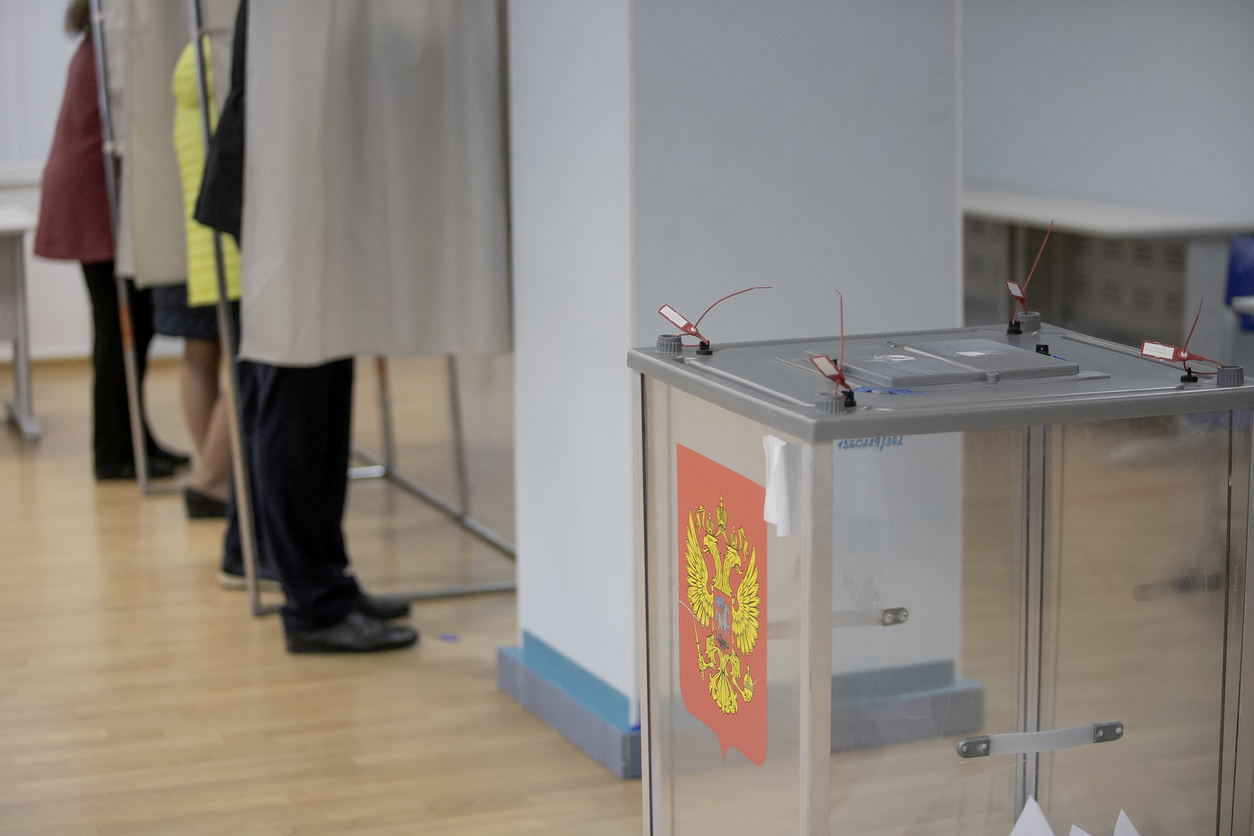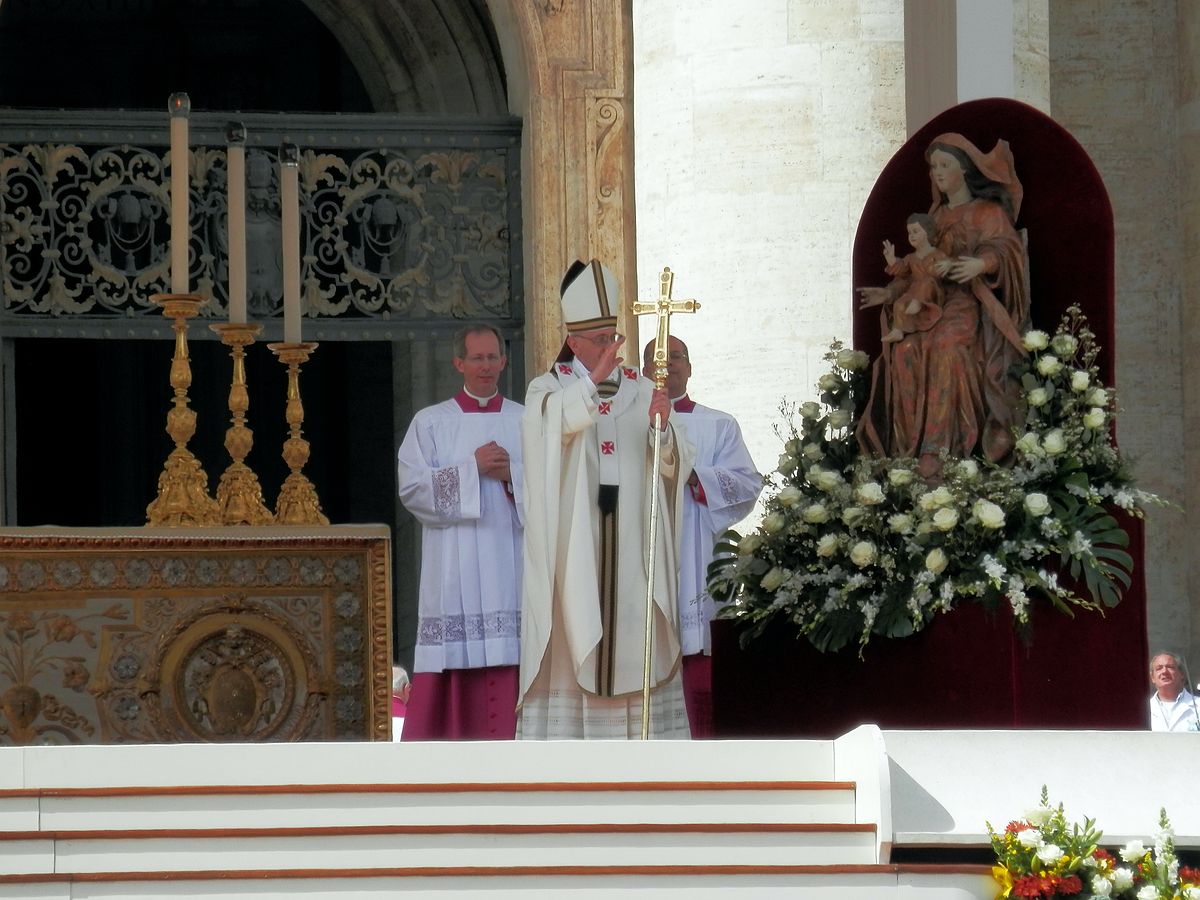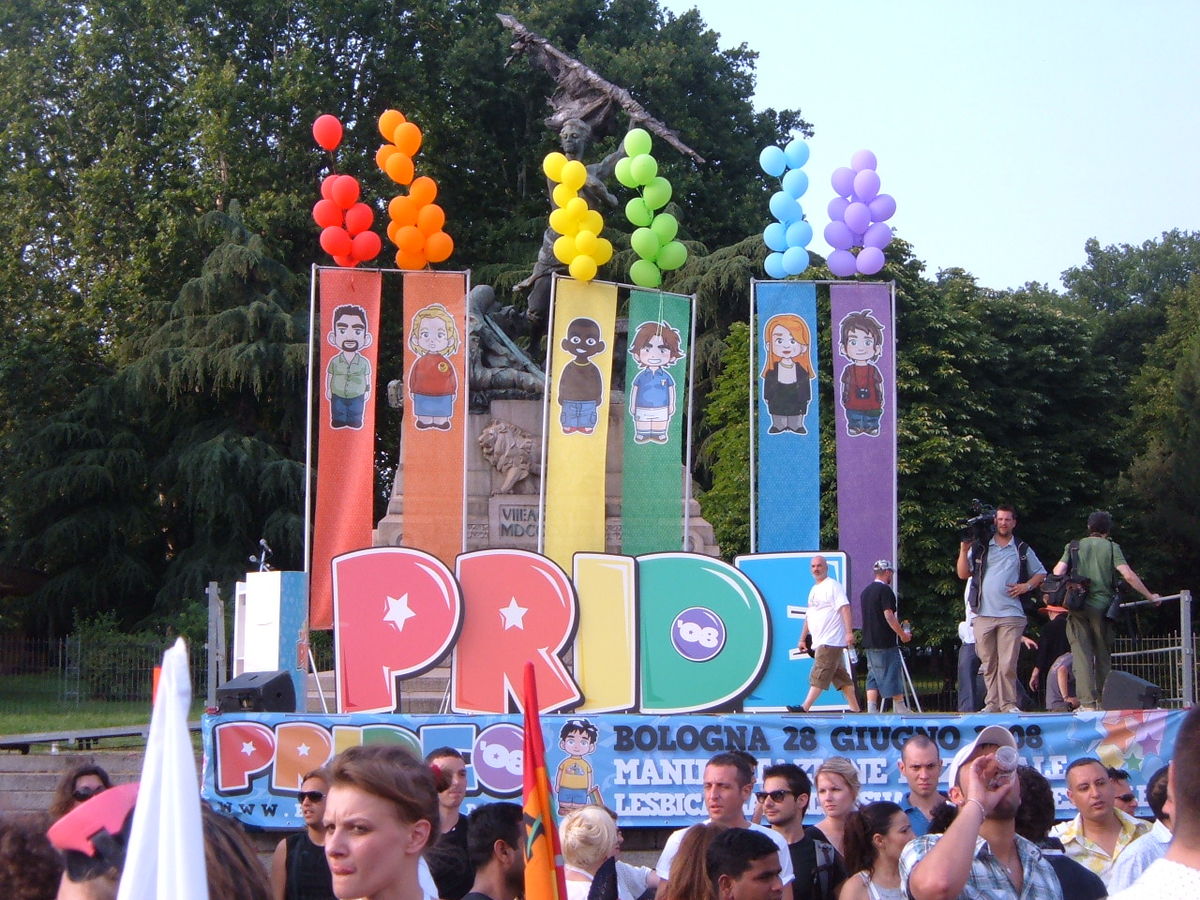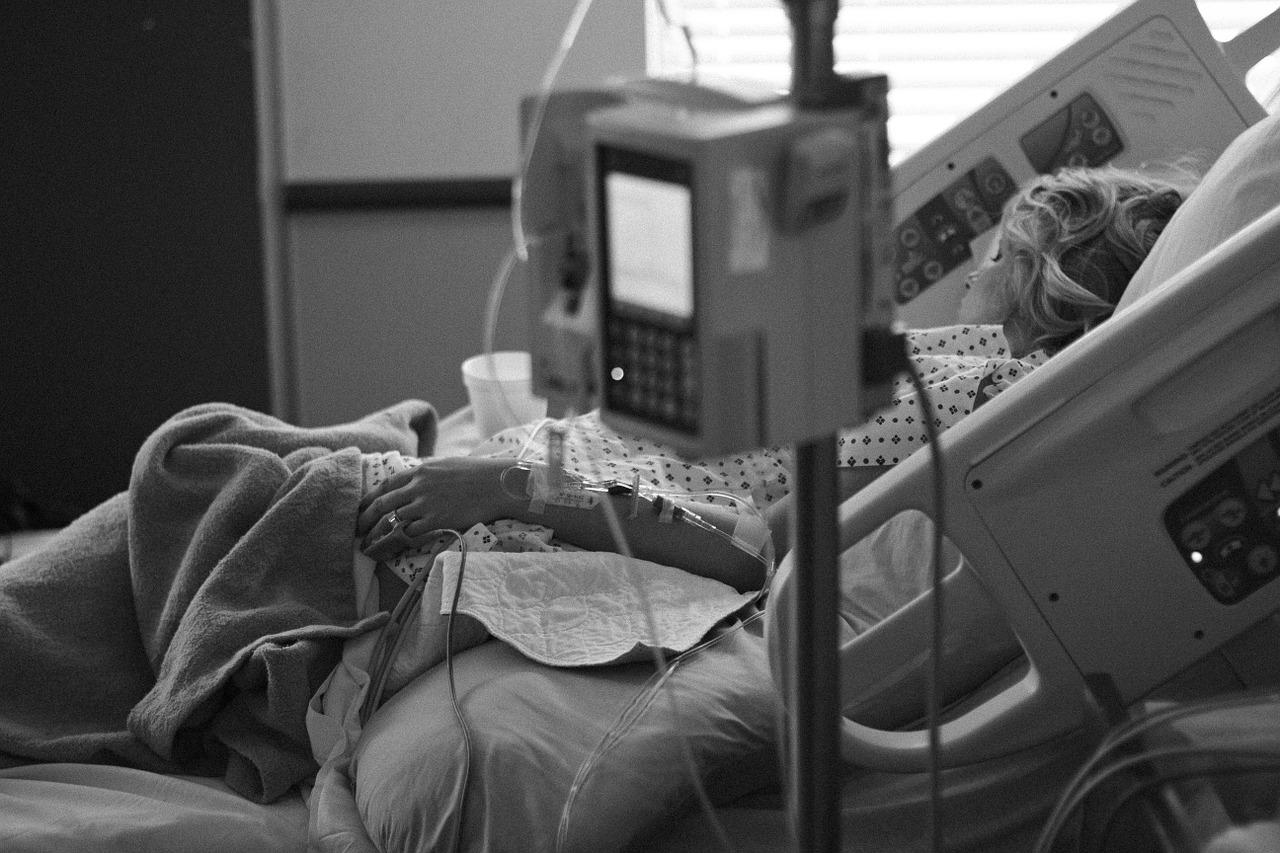No alternative to Putin

To the Kremlin’s delight, Yulia Navalnaya will not be the new Alexei Navalny, but at most the new Tsikhanouskaya. With the death of Russia’s only genuine opposition figure, all political competition is over. Putin is in a very comfortable position ahead of the upcoming presidential elections.
Maciej Pieczyński
We may never know precisely what happened on February 15 or 16 in the “Polar Wolf” penal colony in Kharp, 60 km north of the Arctic Circle. But regardless of whether Alexei Navalny was murdered or died of natural causes as a result of the prison’s harsh conditions, Vladimir Putin is responsible for his death, and the beneficiary is Putin himself.
He got rid of his most serious rival among the anti-establishment opposition. And it will cost him very little, because neither the silent and few nationwide protests held by the murdered man’s supporters nor possible pressure from the West will influence the Kremlin ruler at this point in time.
It was clear that Navalny would end up in the gulag when he returned to Russia in early 2021. Was he suicidal, preferring to become a dead symbol instead of a living expatriate? Or did he count on the patronage of one of the Kremlin’s stooges? If so, this would support the theory that the founder of the Anti-Corruption Foundation was involved with some of Moscow’s power elite. Or did he underestimate the regime?
Russia then was slightly different from what it is today. Putin was more respectful of Western opinion before the invasion of Ukraine. He assassinated opponents, but he did it with white gloves and without leaving clear evidence. Sitting behind bars, Navalny could initially count on nothing happening to him because the Kremlin’s responsibility for his death would have been too obvious and troublesome for Putin’s image.
Putin has tightened the screws since then, however. He no longer cares about any pretense. Navalny’s death symbolically shows that there is no room for opposition in Russia. Putin has proven that he can literally do anything he wants to his political opponents, and frankly, he can do it with impunity. Significantly, he proved it a month before the presidential election.
Navalny couldn’t have run in the election, anyway, although he had the opportunity, through his associates, to give people hope and encourage them to continue to resist from behind bars. Shortly before his death, he supported the “Noon against Putin” campaign. The idea of it is that on voting day, opponents of the incumbent will all go to the polls at noon sharp, in a safe but simple way, to demonstrate their dissatisfaction with the authorities. It’s not much, but Putin’s opponents can’t afford anything more today.
A similar act of passive protest against the authorities was carried out by those queuing up to support Boris Nadezhdin’s candidacy. He is an establishment politician, more widely known than popular and not inspiring much confidence or respect, but he is the only one willing – voluntarily or as part of a plan of the Kremlin, which is another matter – to run on moderate anti-war slogans.
This confronted Putin with a rather large degree of dissatisfaction with his policies – by Russian standards, at least. The Kremlin’s domestic strongman has no intention of taking any risks, probably assuming that it is safest to eliminate all potential threats. That’s why Nadezhdin, the establishment rival, was not allowed to run in the elections – and Navalny, the anti-establishment opponent, did not live to see the elections.
The extent of the victory
Putin will remain President of Russia. The only thing at stake in the election is the scale of his victory. The smaller the result, the greater the courage and position of that part of the power elite that may be tired of the war and which would prefer to compromise with the West in order to continue doing business with it.
But this is only a potential trickle that will not erupt into a torrent. Even if Putin doesn’t get the expected (by some) 80 percent of the vote, he will make up the missing percentage himself if he wants to. The Russians won’t say a word about it – but not necessarily because they massively support the current government and its course.
These are not the days of euphoria such as were seen after the annexation of Crimea. War fatigue (and fear of personal involvement) is certainly widespread. Russians are naturally passive, uninterested in politics, and unwilling to take risks, and the current situation only encourages this attitude.
Fear of repression is natural and will only increase. As of October 2023, there are at least 185 people imprisoned in Russia for purely political reasons. Among them are well-known leaders of the opposition, such as Vladimir Kara-Murza and Ilya Yashin. With Navalny’s death, they must fear that they are next in line. Plus, they know that since no one was able to save the leader of the Anti-Corruption Foundation, who is revered in the West, no one will lift a finger to defend them.
An insoluble dilemma confronts the Russian opposition. It needs to act domestically if public support is to be won. Navalny was well aware of this fact, which was the reason for his return to Russia in the first place.
Emigration condemns Putin’s opponents to the position of activists: popular in the West, but without any real influence on their compatriots; they become more commentators than politicians. But activism at home can only have two dimensions. One can either pretend to be an oppositionist or actually be one; to pretend is to be a tool in the hands of the authorities.
The “spoiler” is a political force whose task is to pretend to be the opposition, scatter the real opposition’s voices, and quietly play the role written by the Kremlin in the political theater. To be a member of the opposition, on the other hand, means prison and perhaps even death. (…)
The “pretend opposition” is certainly Putin’s only registered challenger. The latest poll by the state’s Public Opinion Research Center (VCIOM) gives Boris Slutsky two percent. Nikolai Kharitonov and Vladislav Davankov each get four percent. In contrast, 79 percent of voters would cast their ballots for Putin.
Kharitonov, who is 75, represents the Communist Party of the Russian Federation (CPRF) and is the oldest candidate in the history of Russian presidential elections. Slutsky succeeded the late Vladimir Zhirinovsky as leader of the nationalist Liberal Democratic Party of Russia (LDPR). Both the CPRF and the LDPR are “establishment opposition” parties, completely loyal to the Kremlin and, in some ways, even more radical than the Kremlin.
Putin’s least pro-Putin “rival” is Davankov, a 40-year-old activist of the new liberal New People’s Party. The group was formed without any problems from the ranks of the authorities and entered parliament a year later. As a result, it is widely regarded as a “spoiler”.
Like Kharitonov and Slutsky, Davankov approves of invading Ukraine and generally supports Putin’s imperialist policies. He also signed Nadezhdin’s letter of support. After the anti-war candidate was denied registration, he said he wanted to communicate with him and incorporate some of his promises into his program. He called Navalny’s death “a tragedy for his loved ones.” (…) One of Navalny’s closest associates noted that Davankov spoke Putin’s language on key issues.
Emigrants
What remains is the opposition in exile. In addition to Katz and the activists of the Anti-Corruption Foundation operating abroad, these are primarily Mikhail Khodorkovsky, Garry Kasparov, and Ilya Ponomaryov. Khodorkovsky has the most authority. As a former inmate who was sent to prison by Putin, he commands respect. He was bold because he was not afraid to challenge the Kremlin, but he was also smart because he left the country at the right moment.
Khodorkovsky and Kasparov were co-authors of a declaration by the Russian democratic forces calling for, among other things, Moscow’s withdrawal from Ukraine. The invasion was likewise condemned by Navalny from behind bars, who in the past had been ambivalent about Crimea’s belonging to Russia.
Ponomaryov, on the other hand, is in Ukraine and has co-founded Russian volunteer units to fight on Kyiv’s side. He is also organizing more “rallies of people’s deputies,” which bring together former Russian regional politicians. He is the only one who directly calls for the Russian government’s violent overthrow in an alliance with Ukraine.
Finally, it is impossible not to mention Yulia Navalnaya, who has announced that she will continue Alexei Navalny’s work. Some commentators see her as a worthy successor to her tragically deceased husband. She was his right hand, supporting, advising, and accompanying him in many public appearances. But she did all this as his wife, not as an activist.
She certainly has a strong character and is courageous, as she demonstrated by publicly declaring her hatred for Putin and accusing him of killing Alexei. In this respect, she appears better than the quiet and rather reserved Svetlana Tikhanouskaya. For obvious reasons, she is now being compared to her. The Belarusian Tikhanouskaya, unlike Navalnaya, did not participate in public life until her husband was behind bars. She found herself in politics somewhat by accident. Before she left the country, however, she managed to run in the presidential elections. Had it not been for fraud, she would have had a chance to win.
Navalnaya lacks such experience and a similar form of political legitimacy. In exile, she will be no more than Tikhanouskaya or Khodorkovsky, and her return to the country, even if it doesn’t end as tragically as her husband’s, will not lead to a revolution.
Moreover, as Putin’s main rival Alexei himself was certainly not supported by most Russians. Even when Navalny ended up behind bars, proving his courage, and when he shortly thereafter made an online video in which he proved that Putin had built a palace with stolen money, there was no breakthrough. And yet this was a year before the invasion of Ukraine – in the “soft” times before the screws were tightened.
This article was first published in Polish in the Do Rzeczy weekly in February 2024.



